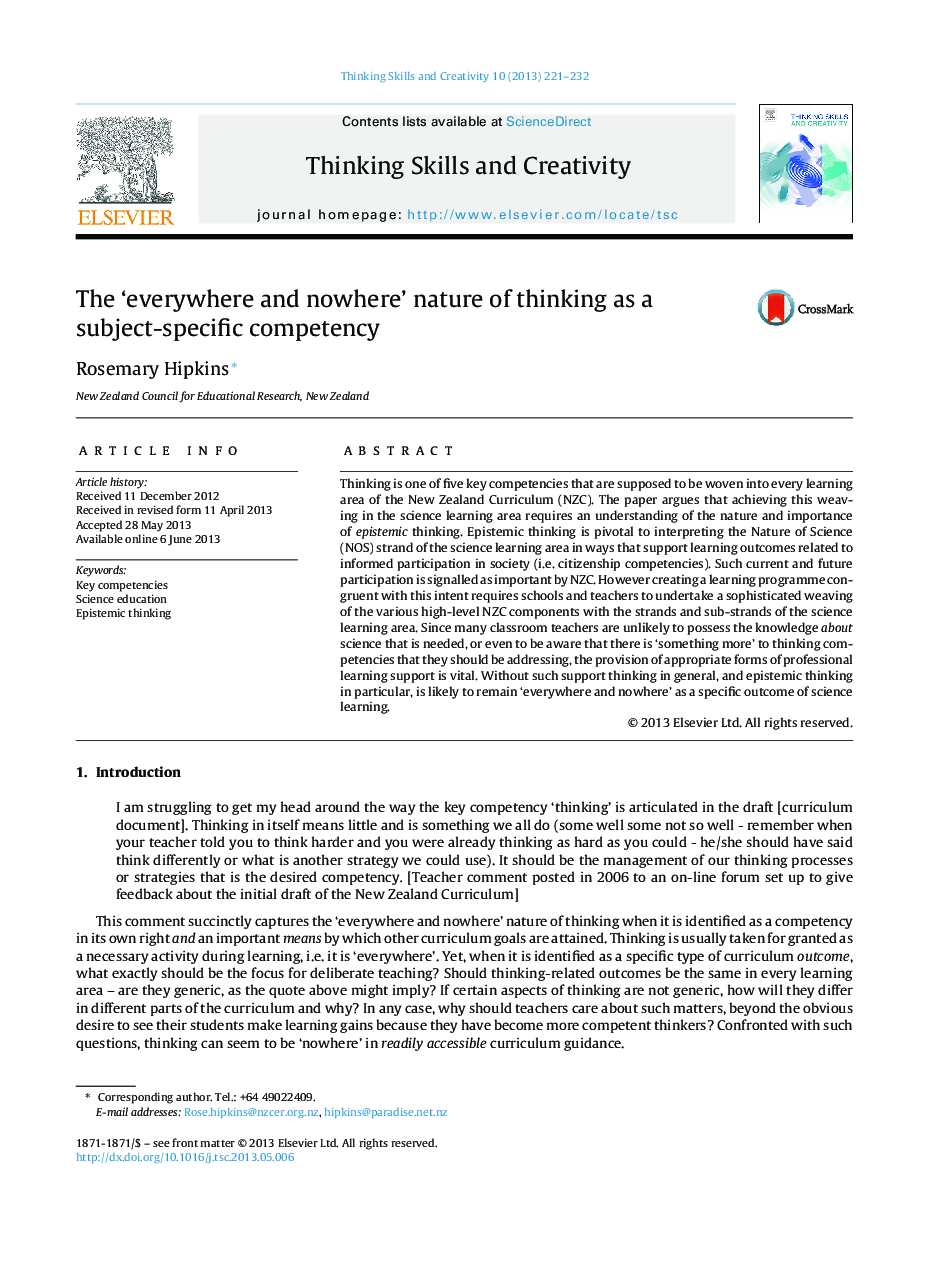| کد مقاله | کد نشریه | سال انتشار | مقاله انگلیسی | نسخه تمام متن |
|---|---|---|---|---|
| 375650 | 622810 | 2013 | 12 صفحه PDF | دانلود رایگان |
• Thinking will remain ‘everywhere and nowhere’ without explicit curriculum guidance.
• Students should practice epistemic thinking as part of their science learning.
• Teachers need exemplars of how to develop this thinking that show why it matters.
Thinking is one of five key competencies that are supposed to be woven into every learning area of the New Zealand Curriculum (NZC). The paper argues that achieving this weaving in the science learning area requires an understanding of the nature and importance of epistemic thinking. Epistemic thinking is pivotal to interpreting the Nature of Science (NOS) strand of the science learning area in ways that support learning outcomes related to informed participation in society (i.e. citizenship competencies). Such current and future participation is signalled as important by NZC. However creating a learning programme congruent with this intent requires schools and teachers to undertake a sophisticated weaving of the various high-level NZC components with the strands and sub-strands of the science learning area. Since many classroom teachers are unlikely to possess the knowledge about science that is needed, or even to be aware that there is ‘something more’ to thinking competencies that they should be addressing, the provision of appropriate forms of professional learning support is vital. Without such support thinking in general, and epistemic thinking in particular, is likely to remain ‘everywhere and nowhere’ as a specific outcome of science learning.
Journal: Thinking Skills and Creativity - Volume 10, December 2013, Pages 221–232
